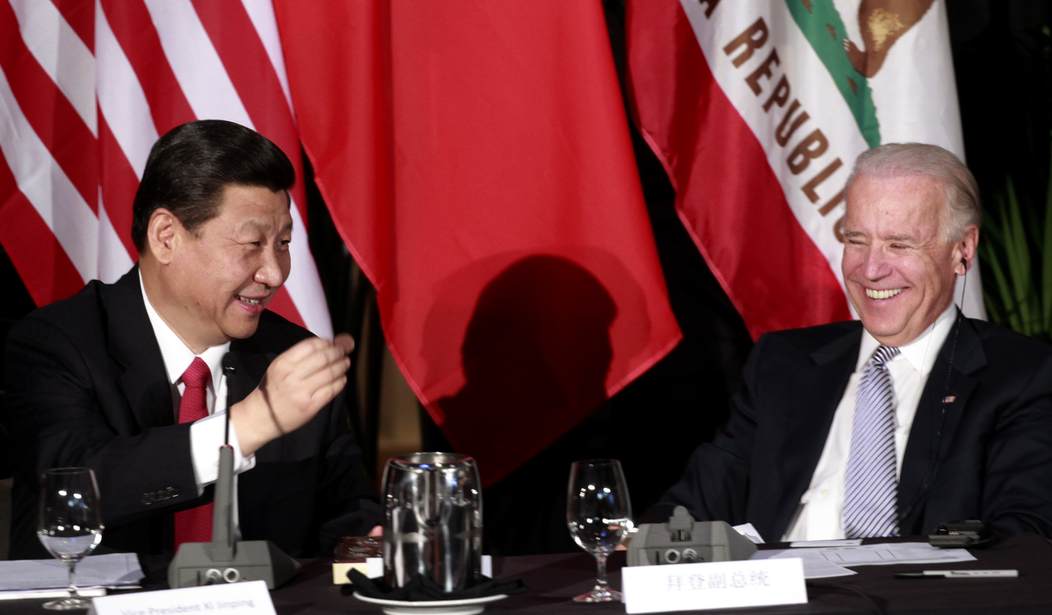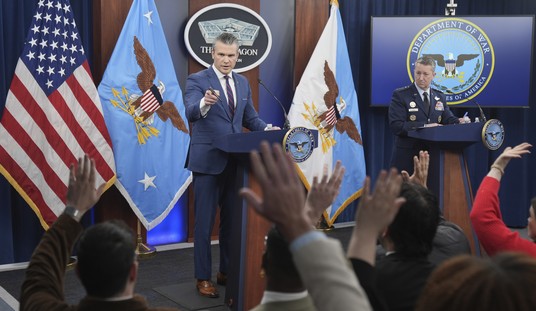A team of New York Times reporters has closely examined Joe Biden’s thoroughly botched Afghan troop withdrawal and his tardy, aborted evacuation efforts that left thousands abandoned behind and professes to see in the Democrat’s halting series of decisions a promising new Biden Doctrine of foreign policy.
God help us if they’re correct.
The analysis began:
In the chaotic finale of America’s 20-year war in Afghanistan, a Biden Doctrine is emerging: a foreign policy that avoids the aggressive tactics of forever wars and nation building, while uniting allies against the authoritarianism of rising powers.
First question, why after more than 15 months’ notice to Pentagon brass and more than 200 days in office was Biden’s draw-down such “a chaotic finale” to 20 years’ occupancy?
This Biden brand of “unity” would be Breaking News to Afghanistan and to NATO allies who, for the first time in the alliance’s 52-year history, invoked the mutual defense Article 5 and joined the United States after the attacks of Sept. 11, 2001. They spent millions and lost 1,144 of their troops along with 2,465 Americans.
It’s long been a given that the U.S. would end its military presence in Afghanistan, actually since Donald Trump’s 2016 upset election after a campaign replete with promises to end America’s “endless foreign wars.” Last year, Trump negotiated an agreement with Taliban representatives promising the departure of all troops by April 30.
The Taliban kept none of its promises, which could have nullified the whole deal. Instead, for unexplained reasons, Biden delayed that departure initially to Sept. 11 and then Aug. 31 without consultation with those allies, who would also need to exit by then or operate without U.S. cover.
Then in early July, again without consulting allies or even informing Afghan hosts, Biden had the massive Bagram Air Base abandoned during the night more than seven weeks early.
How much trust do you think Afghanistan’s elected president, Ashraf Ghani, would then have in Biden’s assurance during a summer Oval Office meeting that the U.S. would fully support the central government in its struggle to combat the Taliban?
Clearly, not much trust as Ghani had a plane ready when the Taliban neared Kabul, and he was among the first to flee, to the United Arab Emirates, as it happened.
Joe Biden was a hawk until he wasn’t one. His announced aversion to military escapades and nation-building, which he stated last week, is relatively newfound and just happens to match the national mood that Trump tapped into five years ago.
Biden did, in fact, vote in favor of both the Afghanistan and Iraq wars.
The article describes the Biden troop pullout quite kindly as “disordered,” a depiction contradicted by the continuous scenes of panic and fear that caused Americans at home to recoil.
ABC News asked Biden about the sight of dozens of desperate Afghans clinging to the outside of a departing U.S. cargo plane with several falling to their deaths or cut in half by landing-gear doors.
Biden dismissed those incidents as “four or five days ago.” This means what exactly from President Empathy? Time makes such disorder less gruesome? They were actually only two days before.
The Biden Doctrine, the Times opines, wisely involves protecting American interests globally through diplomacy, select anti-terrorism military activities, and “forceful action when necessary.”
For some ancient Americans, this has the pungent smell of failure much like the limp foreign policies of Jimmy Carter that produced the 444-day-long Iranian hostage crisis of 1979 that highlighted the military impotence of his administration.
The Times predicts Biden will be much tougher than Trump on Russia under Vladimir Putin because the American told the former KGB colonel that involvement in U.S. election meddling was unacceptable and gave Putin a list of 16 targets that he requested not be cyber-attacked.
Biden has already lifted sanctions on executives of Putin’s new undersea gas pipeline to Germany that will undercut U.S. LNG sales to Europe and increase the dependence of NATO allies on Russian energy.
In return, the U.S. leader received nothing. In fact, Putin then proceeded to install the S-300 advanced air defense system in Belarus close by the Baltic nations that he wouldn’t mind re-incorporating into a Russian federation as an enhanced geographic buffer against the West.
In a recent meeting with Israel’s new prime minister, Biden appeared to fall asleep. But when awake, he warned vaguely that Iran continuing its pursuit of nuclear weapons and ICBMs would force the U.S. to consider “other options.”
Barack Obama talked tough, too. Remember his infamous “red line” over continued Syrian use of chemical weapons on civilians? They did anyway. And the Obama-Biden administration failed to respond. Threats only work if enemies seriously think they might be used.
Nobel Peace Prize winner Obama did launch military attacks against Libyan dictator Moammar Gadaffi. He was killed by a mob, but Libya became a failed state and popular training ground for al Qaeda, ISIS, and other terrorists.
Odds are the newly-reinstalled Taliban will become the same kind of host, as it was when al Qaeda planned and practiced the 9/11 attacks there.
Hoping to lure Iran into new nuclear negotiations, Biden has already lifted a number of economic sanctions, but sought nothing in return. He got nothing in return.
With his keen grasp of conventional wisdom, Biden is said now to consider as the top strategic competitor China, which continues to expand its navy (at times launching two warships in a single day), expanding its artificial islands in the South China Sea and constructing vast military infrastructure on them.
In recent days, warplanes of China, which claims Taiwan as its territory, penetrated the island nation’s protected airspace in threatening gestures.
And oh, by the way, there’s been no announcement that Hunter Biden has divested his significant Chinese financial holdings, as promised long ago by the president who claimed he’d never discussed them with his son.
No one can get inside the heads of foreign leaders. But does anyone seriously think, given Biden’s often confused state, his unsolicited diplomatic freebies to potential adversaries, bumbled troop pullout, and aversion to gestures of more than token military strength, that the oldest president in history would order forceful responses to aggressions by China, Russia or Iran, for instance?
In a university speech last month, Secy. of State Antony Blinken made an unusual admission:
It’s no secret to any of us that the Chinese and Russian governments, among others, are making the argument in public and in private that the United States is in decline. So, it’s better to cast your lot with their authoritarian visions for the world than with our democratic one.
It’s now no secret either that this so-called Biden Doctrine, fed by a frail president with his tired team of like-minded advisers and his tardy, protracted troop withdrawal gifting the Taliban with billions in abandoned military gear, will do absolutely nothing to deter potential adversaries or improve that global impression.












Join the conversation as a VIP Member